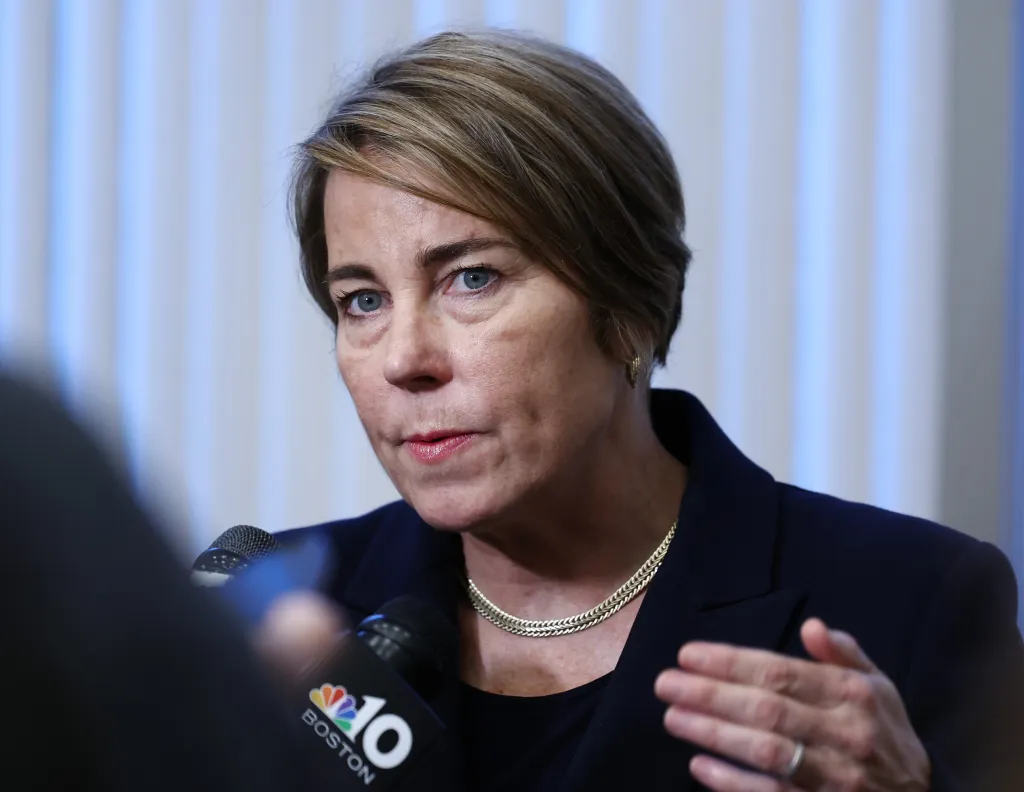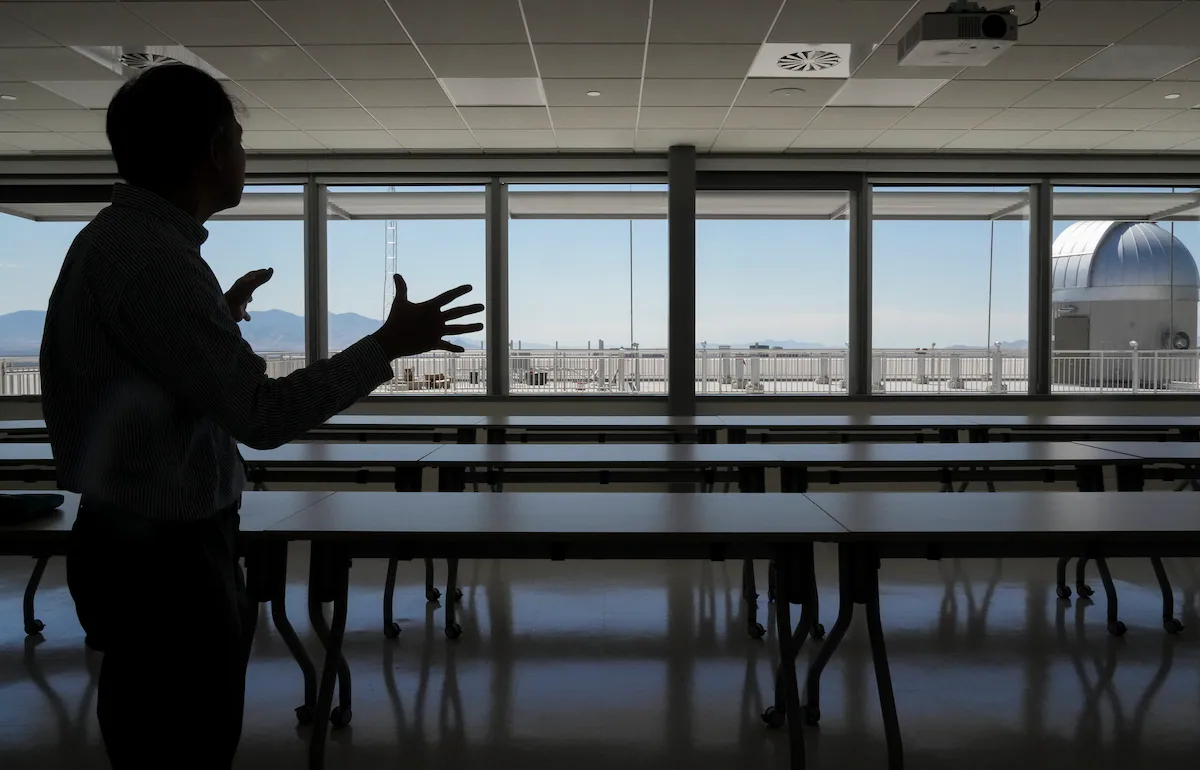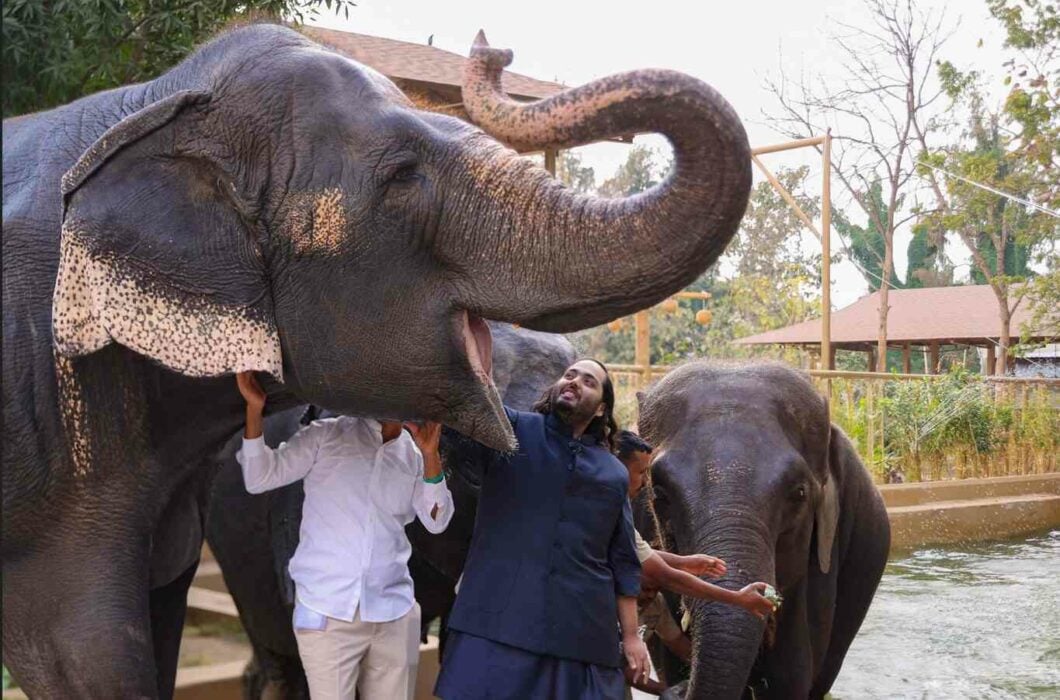
More than half of likely 2026 general election voters in Massachusetts believe Gov. Maura Healey should be reelected to a second term, and another 51% approve of the job the Arlington Democrat has done, according to a University of New Hampshire poll released Monday.
The poll confirms what other surveys have consistently shown — Healey holds a comfortable approval rating and is the favorite to win the 2026 governor’s race. The UNH survey also makes clear that the two Republicans competing to challenge Healey are still unknown among voters.
Andrew Smith, the director of the UNH Survey Center and a political science professor, said Healey’s approval rating has increased from 37% in May, when UNH last issued a survey on the topic.
“She’s popular enough that she’s above water,” Smith told the Herald Tuesday. “As we get closer to the election, you’ll see that the Democrats, unless something dramatically happens, are probably likely to fall in line behind her even if they don’t agree with all the policy positions that she’s taking.”
A spokesperson for Healey’s campaign referred the Herald to the Massachusetts Democratic Party. MassDems Party Chair Steve Kerrigan said the poll confirms “what we already know.”
“Voters know Maura Healey is going to win this race because she’s the only one who can lower costs, deliver on healthcare, reduce energy bills, and stand up to Donald Trump. While the Republicans vie for Trump’s admiration and attention, Maura Healey is delivering real wins for the people of Massachusetts to create a more affordable state and grow our economy,” he said in a statement to the Herald.
The poll surveyed 762 Massachusetts residents through an online survey between Sept. 17 through Sept. 23, and the margin of error for the survey is 3.6%.
Only 46% of respondents held a favorable opinion of Healey, and another 39% had an unfavorable opinion, according to the survey. But 77% of Democrats were favorable of the governor compared to 32% of Independents and 2% of Republicans, the poll found.
Smith said Healey is likely to benefit from a midterm election where the president’s party — in this case Republicans under President Donald Trump — generally performs poorly.
“Massachusetts is such a Democratic state, it’s going to be very hard for a Democrat to lose, especially in a midterm election with a Republican president,” Smith said. “Democrats are going to be much more motivated.”
Massachusetts residents are divided on whether U.S. Sen. Ed Markey deserves to be reelected, with only 42% of respondents agreeing that he should be sent back to Congress for a third term.
Another 39% said he should not be reelected, and 35% of those surveyed held a favorable opinion of the 79-year-old, according to the survey.
A spokesperson for Markey did not immediately respond to a Herald inquiry.
Smith said Markey could be in a vulnerable position if Democrats like U.S. Reps. Seth Moulton of Salem or Ayanna Pressley of Boston stepped up to challenge him in next year’s primary contest.
“He’s been in office for as long as anybody can remember,” Smith said. “It’s going to be a challenge. Now, he’s an incumbent. He’s got money. But right now, in American politics, your bigger challenges are in the primaries, not in the general election.”
A majority of likely general election voters do not know or hold no opinion on whether John Deaton, a Republican who unsuccessfully challenged U.S. Sen. Elizabeth Warren last year, should run against Markey in 2026, according to the survey.
Deaton plans to make a final decision about running for Senate in October and has been canvassing political consultants to mount a potential campaign against Markey, he previously told the Herald.
In the still sleepy Republican gubernatorial primary, 31% of likely voters in the contest said they would back Brian Shortsleeve, a venture capitalist and former MBTA official, the poll found. Another 22% said they would support Mike Kennealy, a former cabinet secretary under Gov. Charlie Baker.
But nearly half, or 47%, of likely 2026 Republican primary voters said they were still unsure of who they would vote for next year, the survey found.
Shortsleeve quickly pounced on the findings of the poll.
“Republican voters support Brian Shortsleeve because he will make Massachusetts affordable for working people with lower taxes and utility fees, ending the spending on the migrant crisis, and repealing the MBTA Communities Act regulations that Mike Kennealy authored,” said Holly Robichaud, a political strategist working for Shortsleeve.
Brian Wynne, a senior advisor and pollster to Kennealy, attacked the UNH survey’s credibility.
“We put very little stock in a 148-respondent poll that didn’t survey a statistically significant number of respondents in 7 of 14 counties; in particular, the poll doesn’t list respondents in either Norfolk or Suffolk counties, which are the epicenter of the MBTA system that Shortsleeve so disastrously mismanaged,” Wynne said in a statement.
This is not the first time Wynne has lashed out at a poll’s findings. He knocked a survey earlier this month conducted by the MassINC Polling Group that found 20% of Massachusetts residents strongly approve of Healey’s work, and another 35% somewhat approve of her time in office.
The UNH survey pulled responses from 148 likely Republican voters with an 8% margin of error for the sample, according to UNH. Only respondents from Central Massachusetts, Middlesex, and Southern Massachusetts responded to the question about the Republican primary.
Smith, the UNH pollster, acknowledged that the sample size for the question on the Republican primary was small but pointed to separate questions on Kennealy and Shortsleeve’s favorability that included responses from 759 people all across the state.
Those questions found that the two men were largely unknown among likely general election voters.
Smith said Republican primaries have “a small sample size” because there are “not that many Republicans in the state.”
“I think that may be a legitimate thing there. It’s just a small number of people. Going back and looking at it, I might have just said, ‘let’s not publish those numbers.’ It’s just small numbers,” Smith said in response to Wynne’s statement. “I wouldn’t be terribly concerned about it. But my sense is that (Kennealy and Shortsleeve are) still not going to be well known.”



